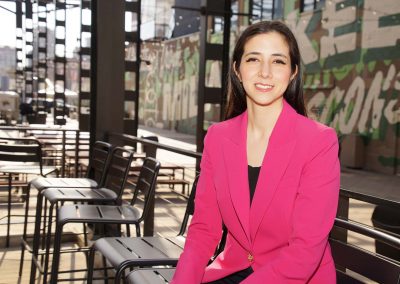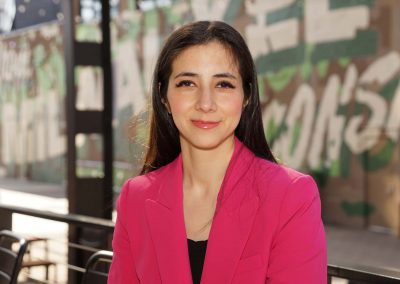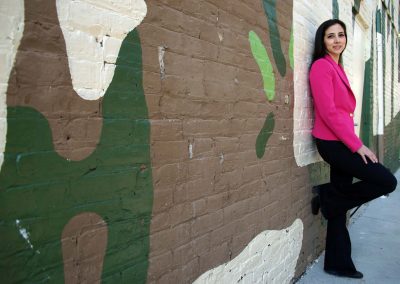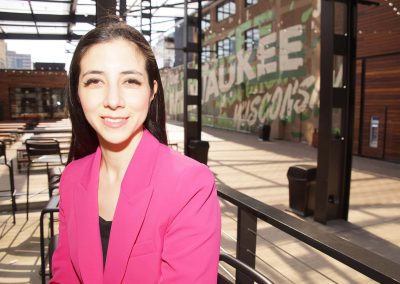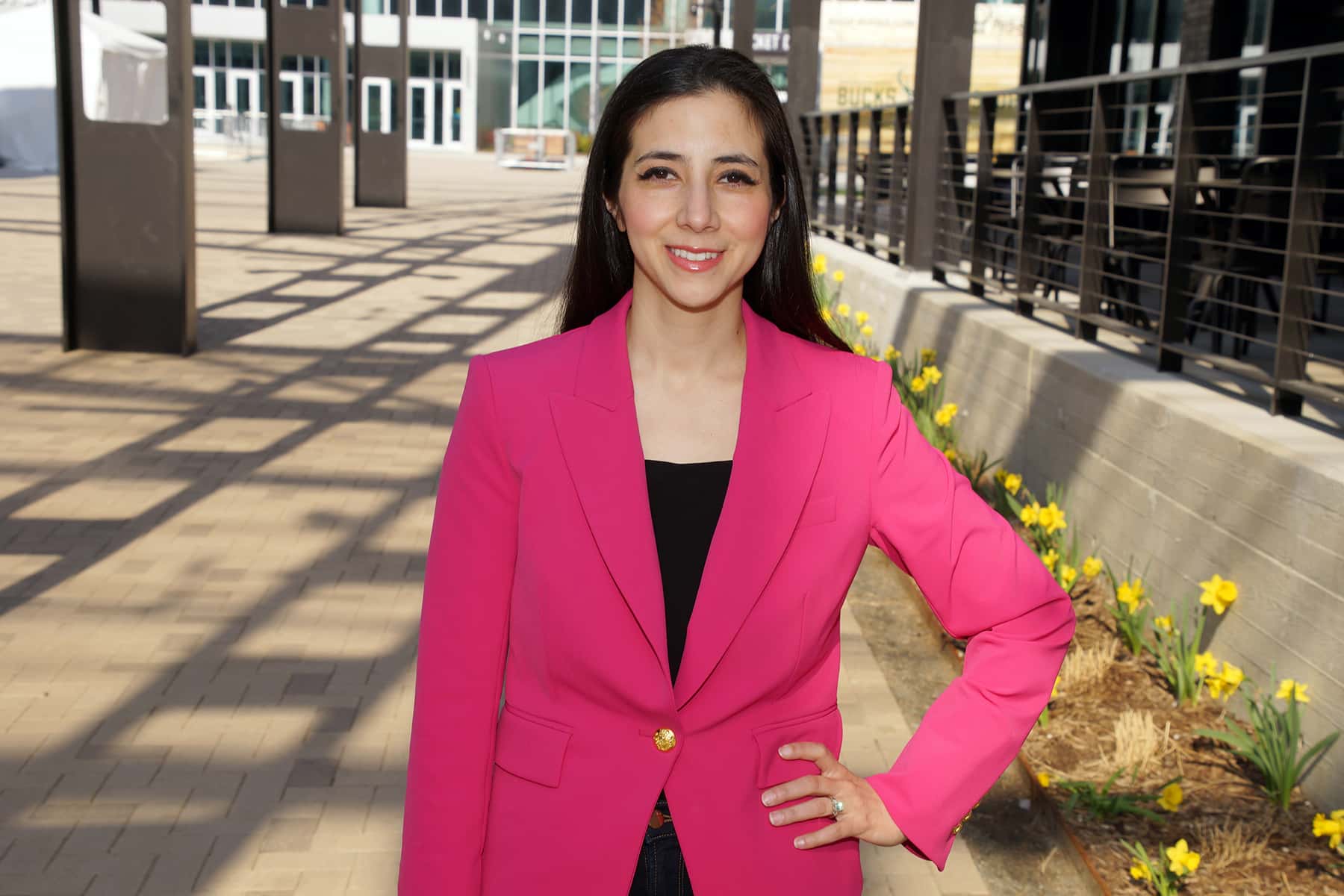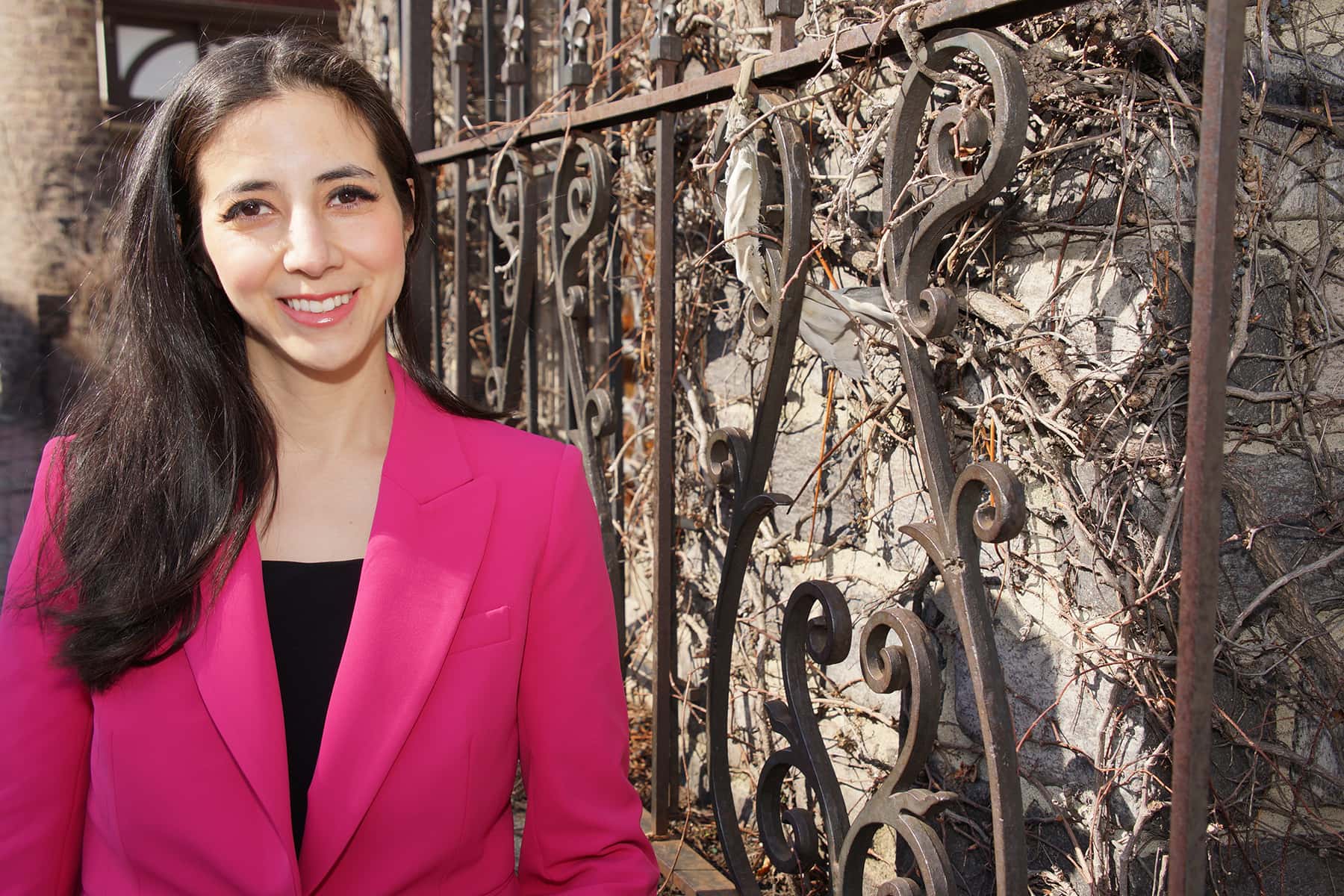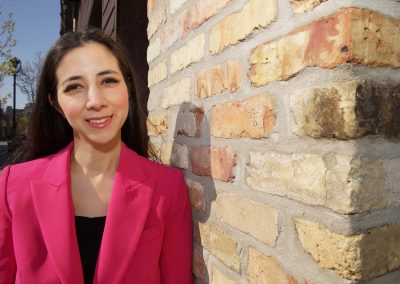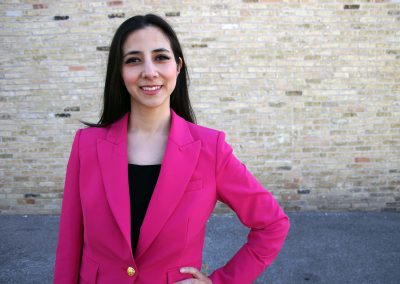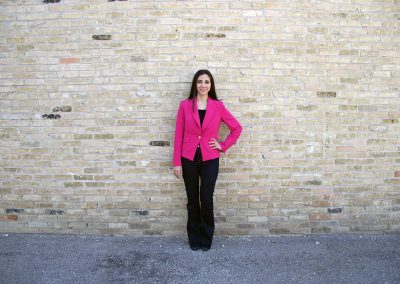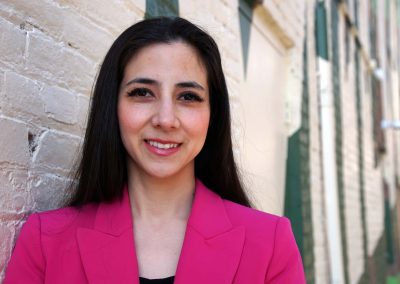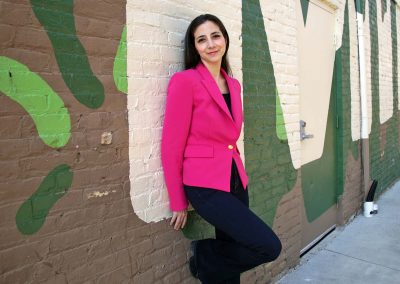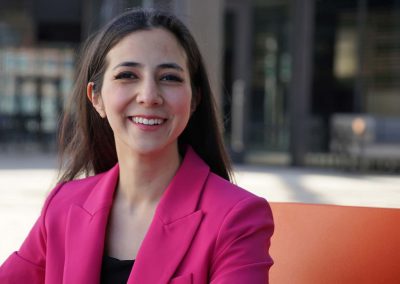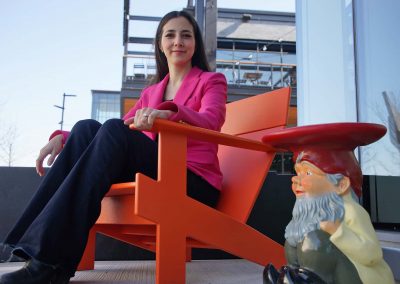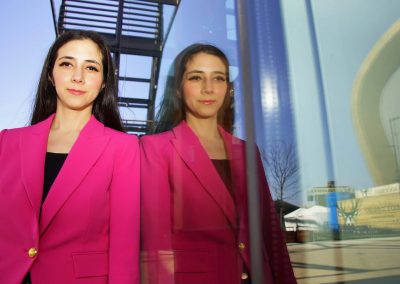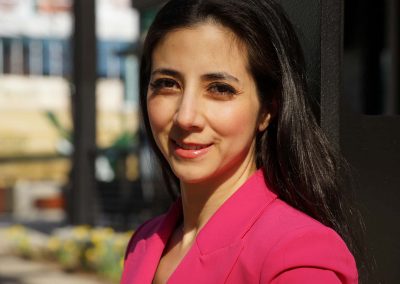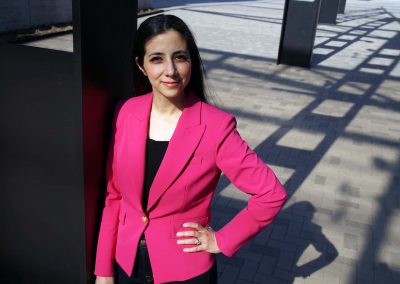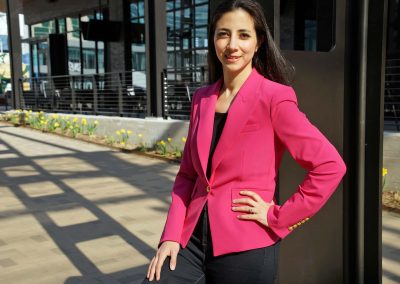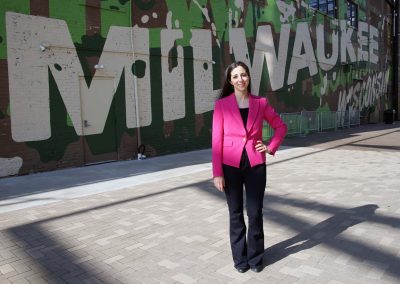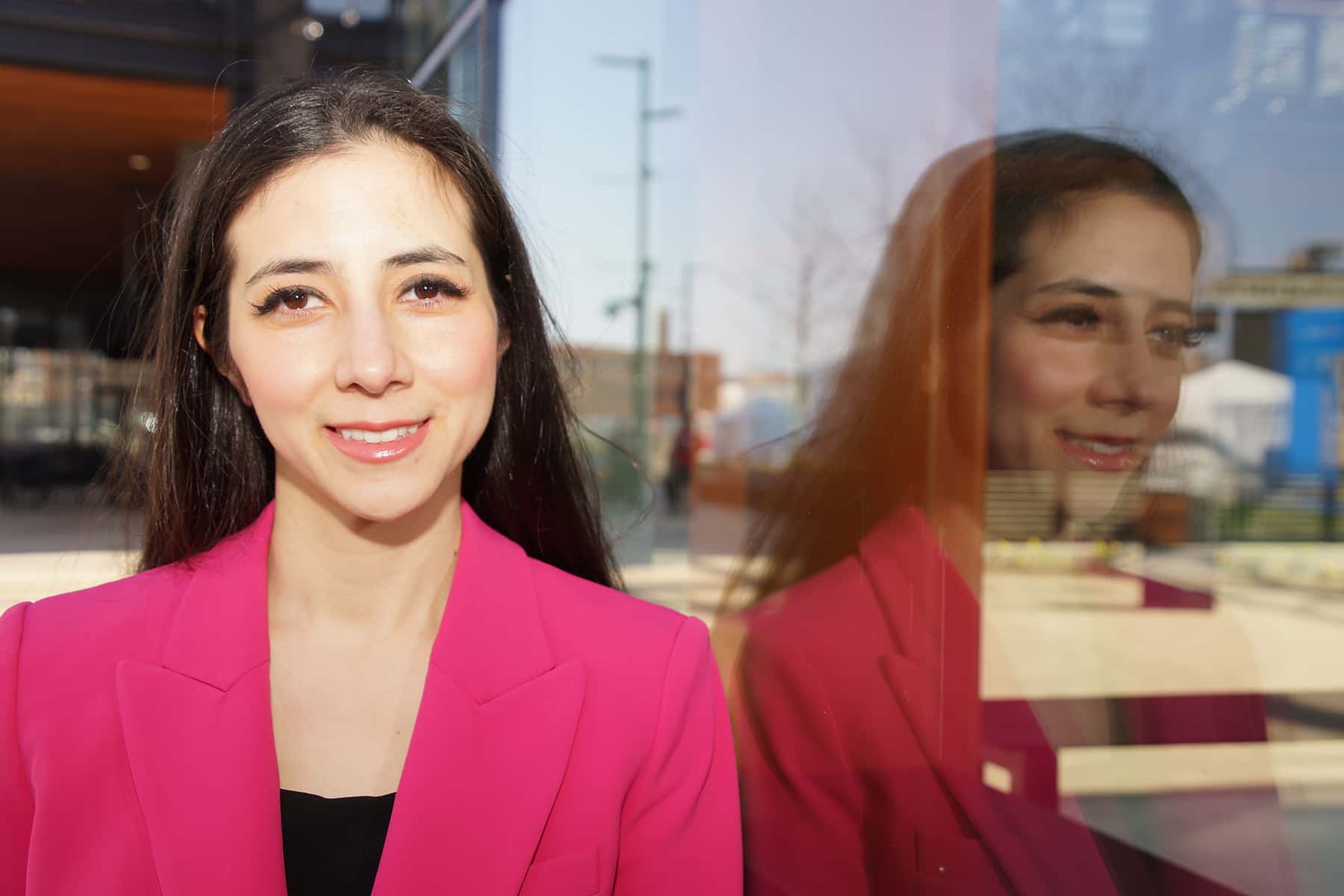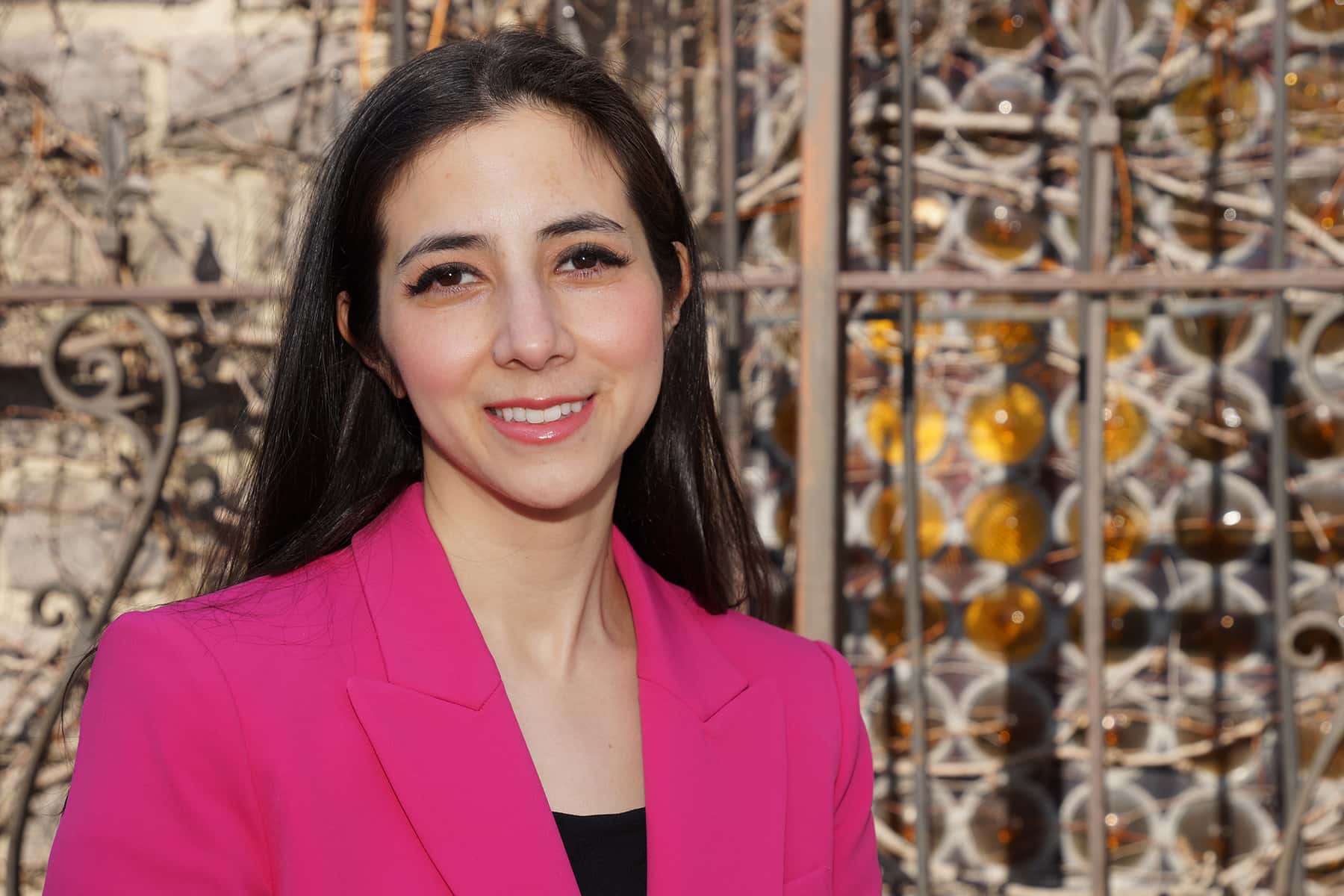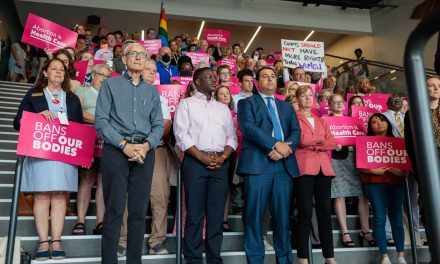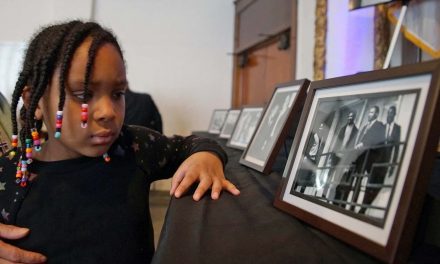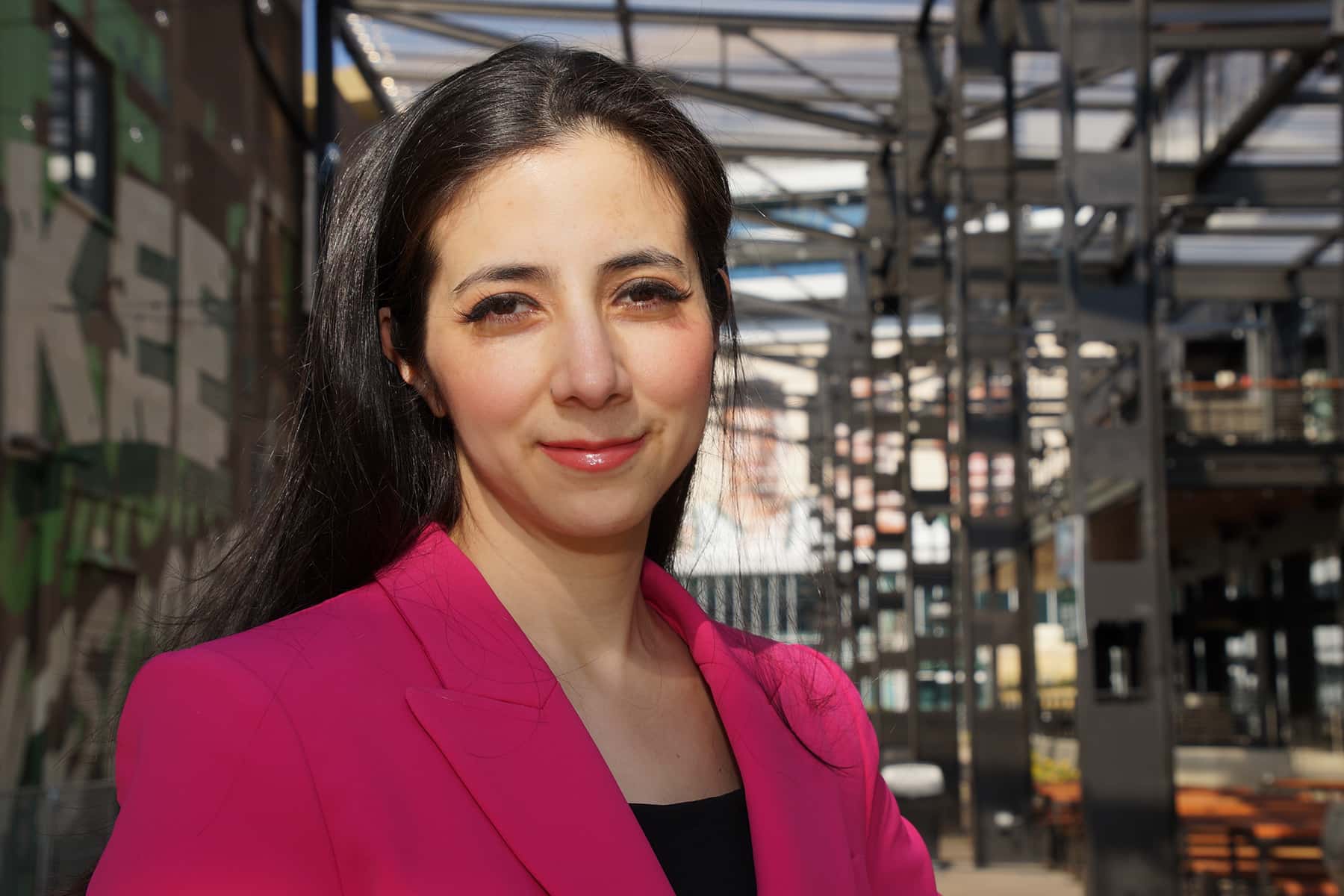
Beyond her expanding medical role as a radiation oncologist and associate professor with the Medical College of Wisconsin, Dr. Malika Siker is an advocate for healing the human spirit.
From the experience of finding her own identity in a multiracial family, striving to overcome social stereotypes of ethnicity during her youth, and a search for meaning in order to fulfill her purpose to assist people, Dr. Siker has dedicated her life to help others with transformative care. She continues building bridges to overcome health care disparities for disadvantaged communities, in an effort to repair the world – or “tikkun olam.”
Q&A with Dr. Malika Siker
Milwaukee Independent: Who was the most influential person during your youth, and how did that contribute to where you are now as an adult?
Dr. Malika Siker: From encouraging me to follow my passions and reach my full potential to being the reality check that was sometimes needed, my father was a tremendous influence during my youth – as I navigated growing up in Janesville, Wisconsin, as a minority. In that homogeneous environment, stereotypes of what I should or could be abounded. I was taught to boldly challenge the assumptions others made for me. As an adult, I hope to be an example and help provide opportunities for others who are struggling in a similar way.
Milwaukee Independent: What were your family dynamics growing up, and did that affect how you fit in at school with other students?
Dr. Malika Siker: While I was growing up in the 1980s and 90s, I just wanted to fit in with my classmates. That was difficult for our family with the blended cultures in our household. I felt like I had to hide certain parts of myself to avoid being teased or bullied. I learned in college that the parts I was hiding were some of my greatest assets. In hindsight, I wish I would have had the courage to be proud of who I was.
Milwaukee Independent: Did your gender or ethnicity ever create obstacles for you, and if so how have you processed those barriers and found ways around them?
Dr. Malika Siker: Intersectionality by definition creates obstacles. As a woman who is both Ashkenazi Jewish and Indonesian, I have encountered this all my life. Growing up, I felt excluded for being Jewish and/or Asian, both within and outside my own cultures and community. While confronting the prejudice I faced early in my life, I also realize that I have benefitted from some forms of privilege. I am motivated to use the lessons I have learned from facing prejudice, while leveraging my privilege to work towards equity for others in need. Thankfully, multiculturalism is now embraced in today’s world, but the pendulum is swinging the other way. I now see other multicultural individuals like Kamala Harris or Bruno Mars having to defend or prove their minority identities, and have experienced this myself. There is no way around this reality, but having a strong sense of authentic belonging to self helps mitigate and process the emotions that arise from this conflict.
Milwaukee Independent: How did you end up living in France, and what was the most important lesson you gained from that circumstance?
Dr. Malika Siker: I went to the University of Wisconsin-Madison for my undergraduate education as part of the Medical Scholars Program, which allowed conditional acceptance to the University of Wisconsin School of Medicine and Public Health as an incoming Freshman. As a Medical Scholar, we were encouraged to pursue undergraduate degrees in either the arts and/or sciences. Drawn to both, I decided to major in French while completing my medical school prerequisites. This led to an incredible opportunity to spend my entire junior year abroad in Paris, France. I went to classes at La Sorbonne while teaching public elementary school students English through a program with the French Ministry of Education. This was the most formative experience of my life. With a job, full student course load, and busy social life, knowing that I could live and thrive in a city as complex and exciting as Paris gave me the confidence to face any challenge.
Milwaukee Independent: Having lived overseas and being exposed to a mix of lifestyles and customs, have you ever experienced a culture shock in Wisconsin or struggled with your own identity?
Dr. Malika Siker: Because of my background and experiences, most people assume that I am not from Wisconsin, let alone Janesville. I look at this as another opportunity to challenge assumptions about what a person from Wisconsin should look like. I am extremely proud to be a product of this state and use my voice enthusiastically to smash these false stereotypes.
Milwaukee Independent: What do you think would surprise people to know about you?
Dr. Malika Siker: Despite having an active social media presence, I am a very private person. I am very intentional about keeping the most sacred parts of my life private.
Milwaukee Independent: How is faith a part of your life, work, and your community?
Dr. Malika Siker: Having a strong faith, however, that is defined personally is necessary to work in difficult fields – such as oncology and health equity. In Judaism, there is a guiding concept of “tikkun olam” or “repair the world.” As a physician and community advocate, the modern definition of this, which is that it is our moral responsibility to work toward a better world, resonates with me.
Milwaukee Independent: What have your children taught you about yourself?
Dr. Malika Siker: This is a subject I discuss rarely in public since my role as a mother is something extremely personal to me. With the birth of a child, there is an intense and profound feeling of wanting to protect, nurture, and guide this new life. I have learned though that parenthood is also about an evolving balance or delicate conflict between holding them tight and letting them go. Before becoming a parent, I do not think I truly understood the meaning of the words “infinite” and “unconditional” in terms of love. There is no room for ego in parenting, only humility, gratitude, and wonder.
Milwaukee Independent: Where did your inspiration in a medical career come from, and what was the biggest sacrifice you had to make in order to reach your goals?
Dr. Malika Siker: My original inspiration in pursuing a medical career came from watching my grandfather fall ill from metastatic melanoma when I was a child. This intention was later cemented when I witnessed a water-skiing trauma as a child on the Rock River. I felt so helpless during these moments and wished I had possessed the skills to help the sick. Achieving my goal of becoming a physician has required many personal and professional sacrifices, both big and small, along this arduous and long journey. Having to miss out on helping my own family with their health struggles, since I am occupied caring for others, is the biggest sacrifice.
Milwaukee Independent: What is the most difficult part of your work, and where do you find hope and satisfaction?
Dr. Malika Siker: The hardest part of my professional work is having to communicate bad news to our patients. Informing a patient about a devastating diagnosis is a very serious responsibility that never gets easier. It is so important to embrace empathy, humility, and vulnerability with every interaction, remain open for feedback, and work towards continuous evolution in clinical skills. It is an immense privilege to be able to help patients during these serious times. However, hope is everywhere, even in the most dire situations. If you do not allow yourself to believe or look for hope, even as the goals of care change, then this type of work can harm your soul.
Milwaukee Independent: How do you manage the emotional demands of your medical responsibilities, and then decompress from those situations?
Dr. Malika Siker: Modern medicine requires physicians to be completely present for every single patient interaction while maintaining the ability to transition quickly between patient encounters. We work hard to master clinical knowledge and provide compassionate care, yet so much of the healthcare dynamic is out of our immediate control. To combat the emotional and physical challenges, I focus on what I can control, which is how to respond to these demands to provide the best care possible for my patients. Mindfulness and a regular yoga practice keep me balanced.
Milwaukee Independent: Is there one story from your medical career that stands out in your memory? And what did that experience teach you?
Dr. Malika Siker: Early in my radiation oncology career, I was unexpectedly called to perform CPR on a critical patient, which is highly unusual due to the scope and location of a radiation oncologist’s practice. As a team, we were able to help this patient regain a pulse and assisted in the transfer of this patient to more advanced care. This event taught me to trust my instincts and experience. It also inspired me to not allow myself to be defined by what a radiation oncologist traditionally does.
Milwaukee Independent: What is the most common or most difficult question you are asked as a medical professional? And, what question do people never ask that you wish they would?
Dr. Malika Siker: The most common or most difficult questions I am asked as a medical professional is “what would I do” if I were faced with the same challenges a patient is facing. In medicine, we prefer to base recommendations on evidence-based scientific data. When this is lacking, these decisions become philosophical or personal, which makes this question particularly problematic. I never want my patients to feel judged while they are trying to make the best decisions to guide their own care. One of the great books to inspire me as an oncologist is “Man’s Search For Meaning,” by Viktor Frankl, which describes the triumph of the human spirit when faced with the worst of humanity. I wish I could spend more time with my patients discussing how they are finding joy and meaning in their lives, as they face potentially critical illnesses. Pursuing activities that bring meaning to one’s life is the best medicine.
Milwaukee Independent: What personal achievements are you most proud of, and what are you still striving to accomplish?
Dr. Malika Siker: There is nothing that means more to me than having the ability to be a positive force in an individual’s life, either personally or professionally. It is these singular relationships that can have the greatest impact on alleviating suffering of those directly around us. I am still striving to find ways to impact more individuals through being a positive force. Most physicians are drawn to medicine to help others, but there is still a feeling of wanting to do more. Joining the board of Kathy’s House has given me the ability to do more for my patients. Kathy’s House provides warm and affordable housing for patients who live far from Milwaukee seeking potentially life-saving treatment only available at our area hospitals in this region. It is a magical oasis where patients not only find a home, but are surrounded by love and support from the staff and volunteers. From home-cooked meals to baby showers, I am so proud to contribute to this organization that transforms the lives of our patients with kindness and dignity.
Milwaukee Independent: What do you feel are some of the greatest needs in Milwaukee that are not being addressed, and what efforts do you think can help?
Dr. Malika Siker: Health disparities among minority communities is one of the greatest problems in Milwaukee, currently requiring more resources to adequately address. In medicine, we are working hard to develop better tools to diagnose and treat disease. Unfortunately, these advancements are not reaching all members of our society equally. I am really proud to be contributing to this work through efforts between Medical College of Wisconsin and community groups. Increased awareness, more funding, and coordination rather than competition are needed to best address these disparities. For example, we need to continue working toward making our outdoor festivals like Summerfest and Pridefest smoke-free. City of Milwaukee Tobacco Free Alliance is providing excellent leadership on this issue. Achieving smoke-free festivals will send a message to our communities that we value the health of all citizens.
Milwaukee Independent: If you could send a message back 20 years into the past and ahead 20 years into the future, what advice would you give to your younger self? And, what question would you ask the older version of you?
Dr. Malika Siker: I would tell my younger self to stop worrying so much about things out of her control. I do not think I would want to know anything from my future self. Being unaware of the future is the greatest and most delicious mystery of life.
Milwaukee Independent: What would you say to encourage young girls in Milwaukee who are interested in a professional career in medicine but lack support and opportunity?
Dr. Malika Siker: Young girls in Milwaukee who are interested in a professional career in medicine should first believe in themselves and not let anyone take away their dream. Perseverance is the greatest key to success. I am here to say, “You can absolutely do it!” There is nothing more powerful than a girl with a dream who will not give up. Once this dream is formalized, hard work and mentorship come next. I would encourage young girls to get in touch with one or more of the many organizations in Milwaukee, like Medical College of Wisconsin and Boys & Girls Club, who are providing career opportunities, guidance, and mentorship toward post-high school STEM careers.
© Photo
Lee Matz

